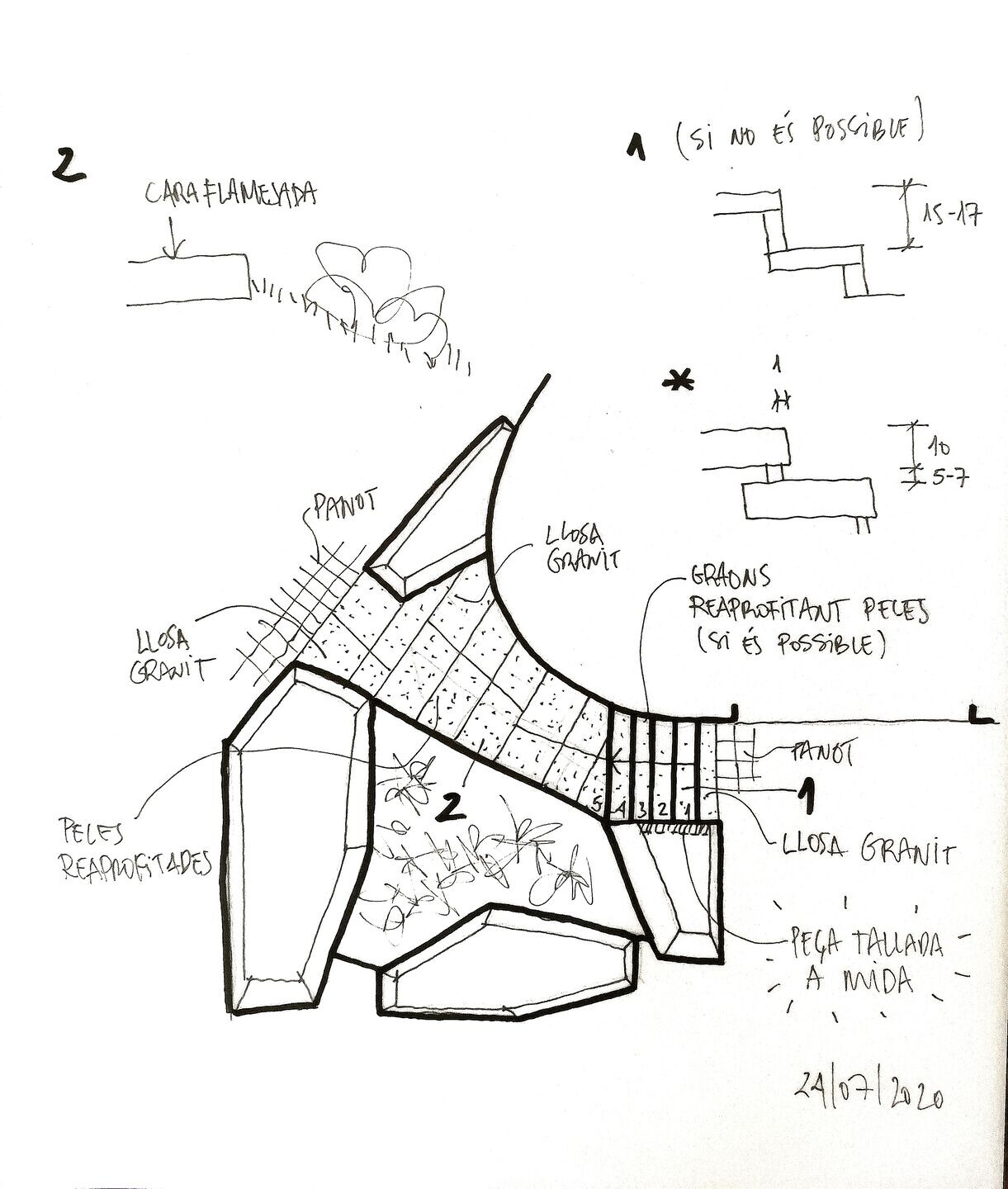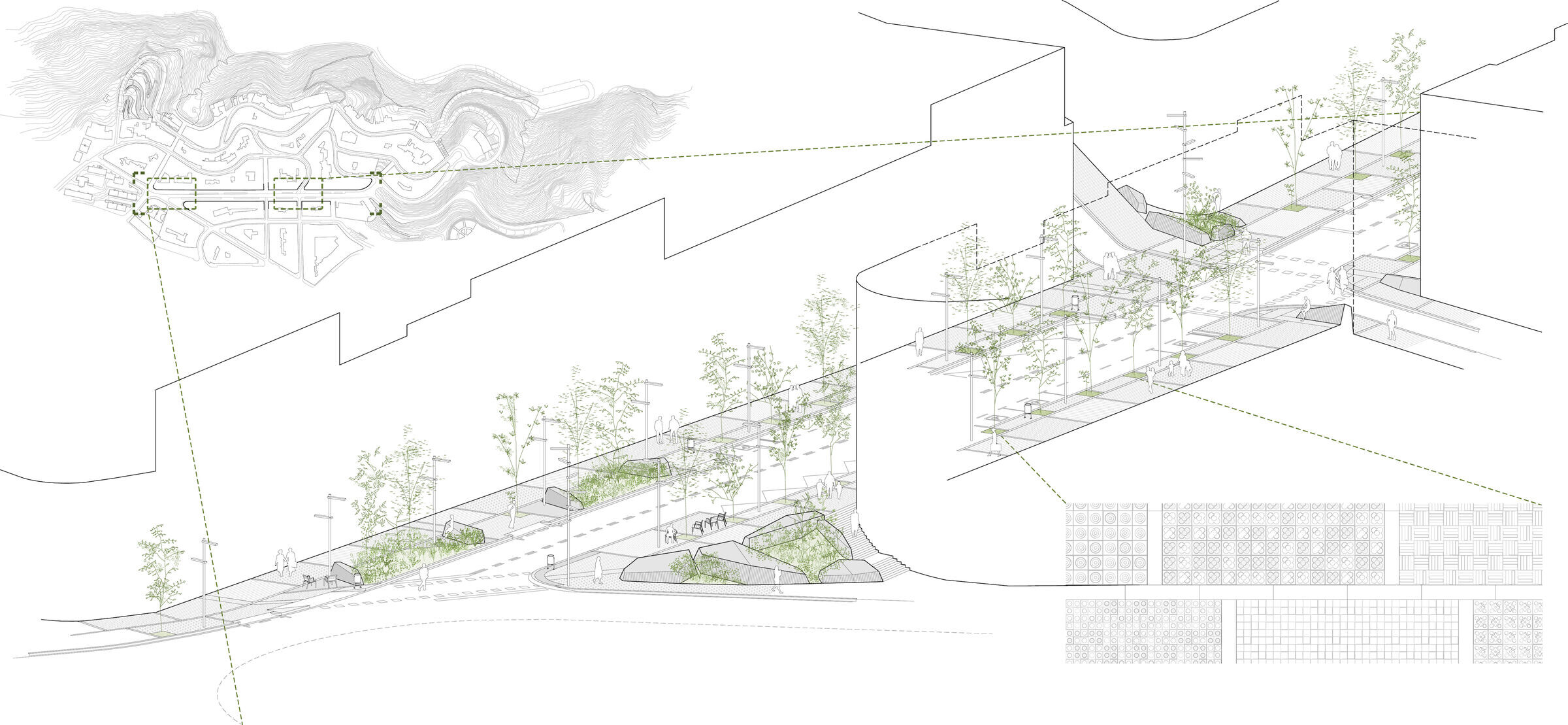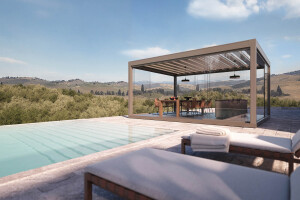Roquetes is a neighbourhood with a character marked by its peripheral location. Already climbing the Collserola mountain range, it contemplates the Barcelona plain below. The topography and the difficulty in providing primary services, such as sewerage or public transport, forged the union of its neighbours, whose fight for their rights kept going from the developmentalism in the dictatorship and the first years of democracy.
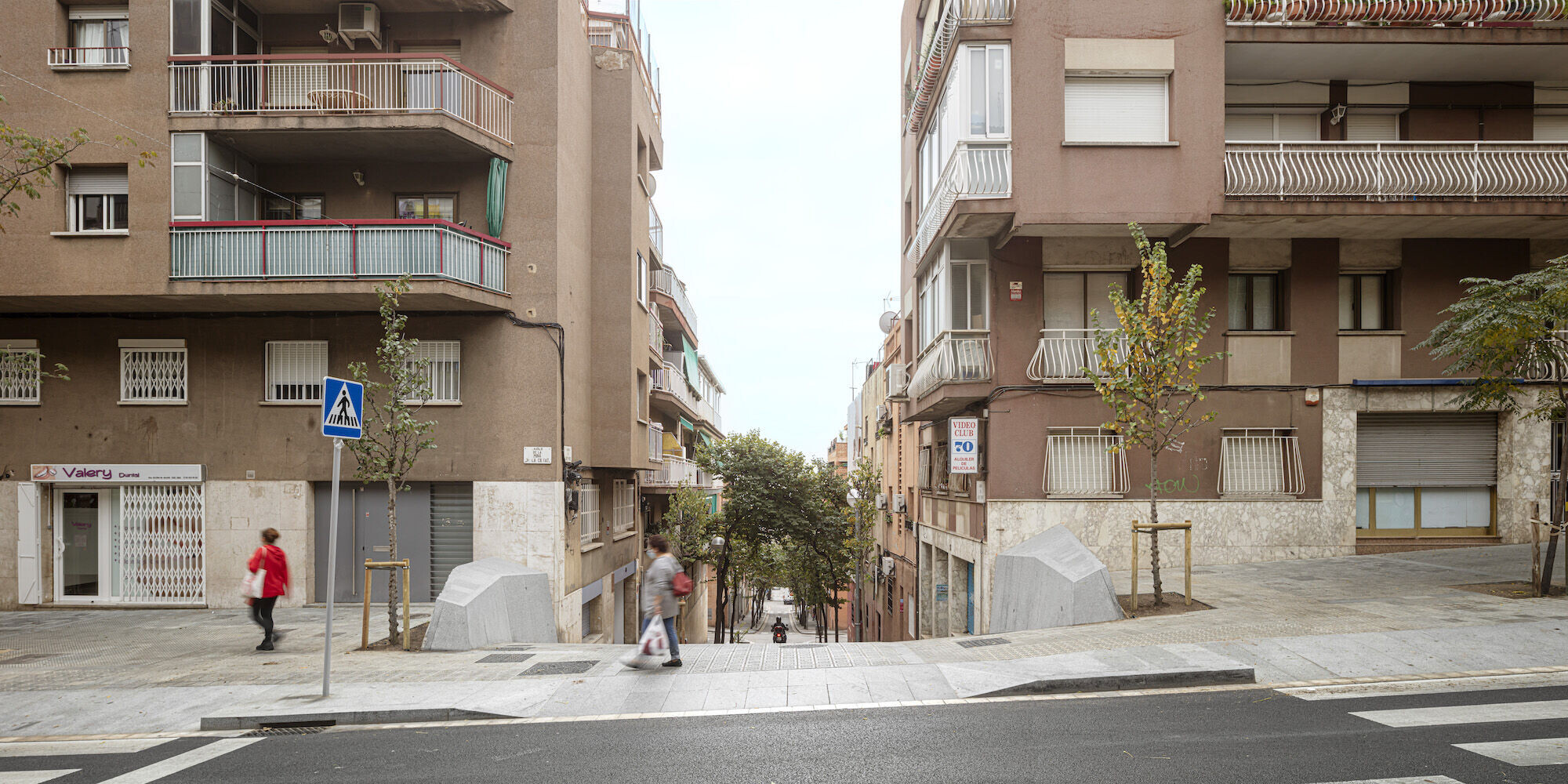
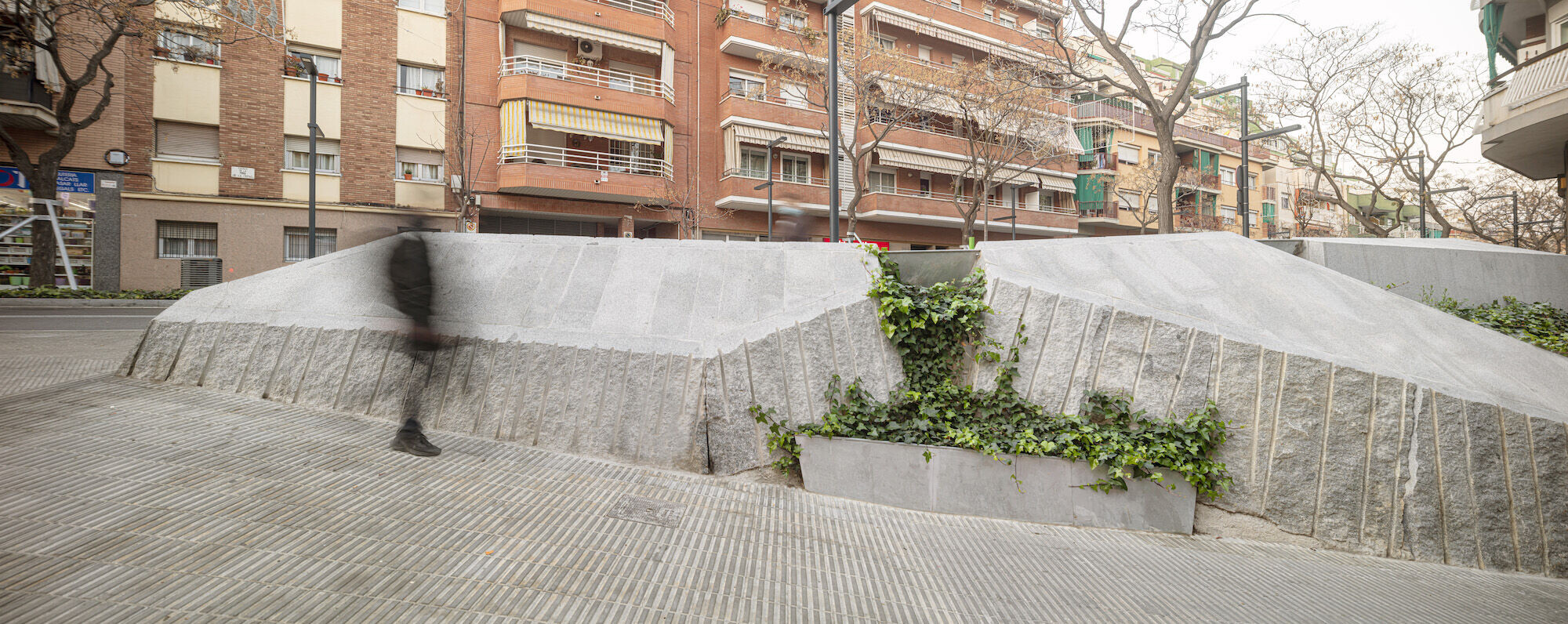
That singular character of the place and its locals, almost surly, is consistent with the rocky subsoil, then it comes to the surface shaped as quarries in some parts of the neighbourhood. The workers' struggle has accustomed the community to the need to get involved in urban development. In its memory remain those Sundays dedicated to the urbanization of some streets that were irrelevant to the Francoist administration of Barcelona. Even today, we notice urban planning emerging from participatory processes or the involvement of citizen associations.
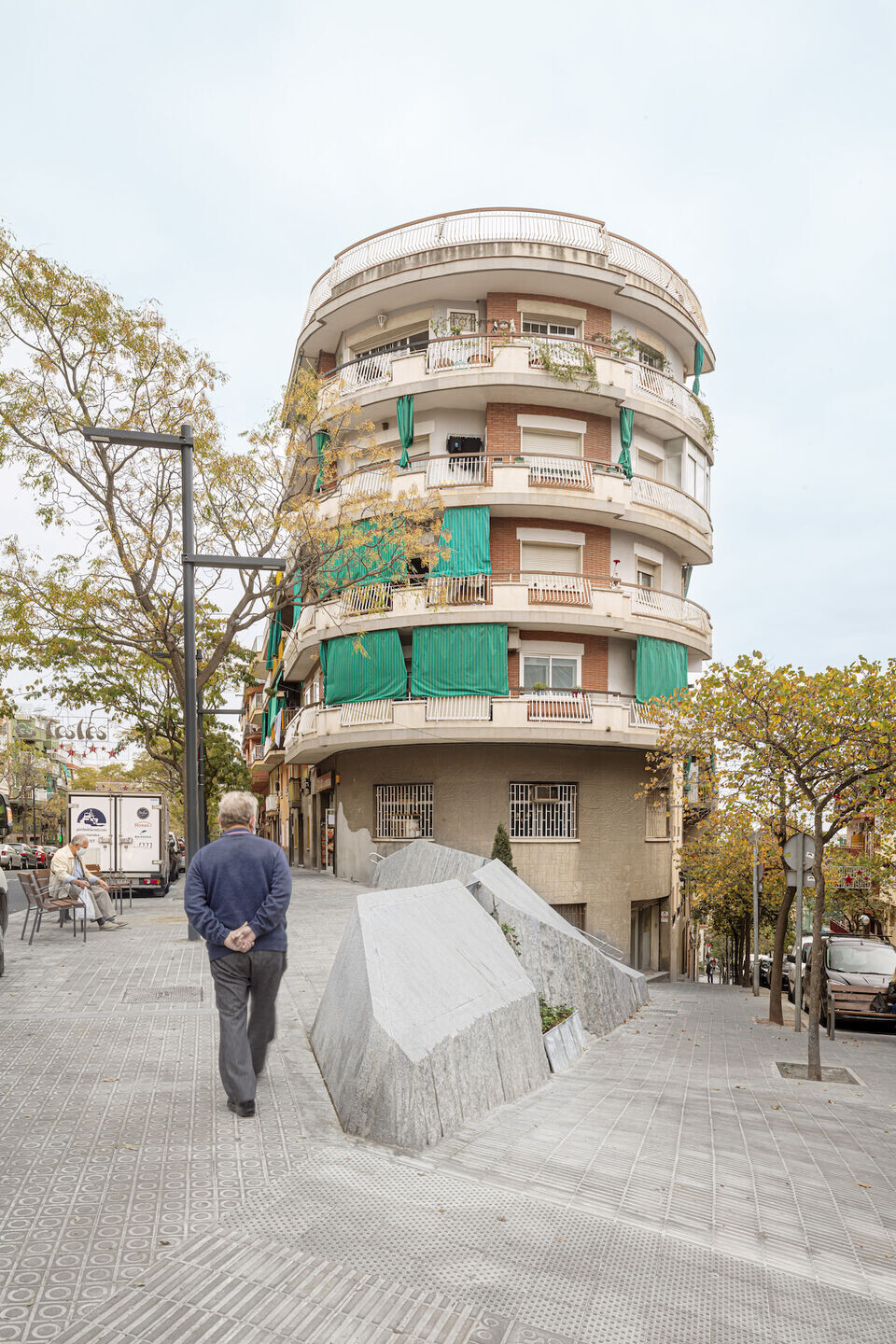
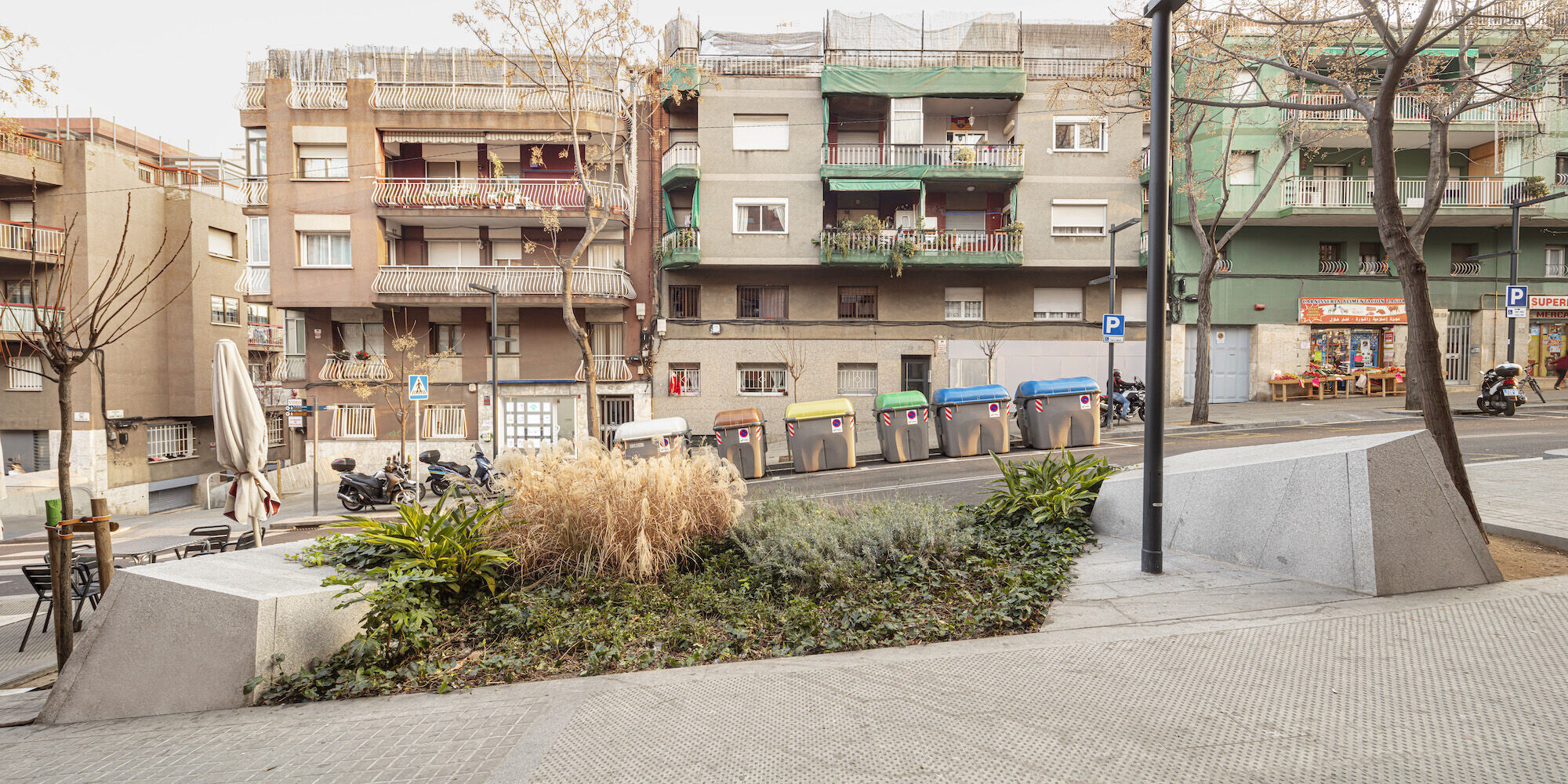
It is an irreducible population, accustomed to accessing its neighbourhood through steep streets with slopes of 20%. At the intersection points between the main street of Roquetes, Carrer Mina de la Ciutat, and the perpendicular slopes of Carrer de les Torres, Jaume Pinent or Pla de Fornells, is where the proposal crystallizes in the shape of rocky polyhedrons that refer to the geometries of the old quarries.
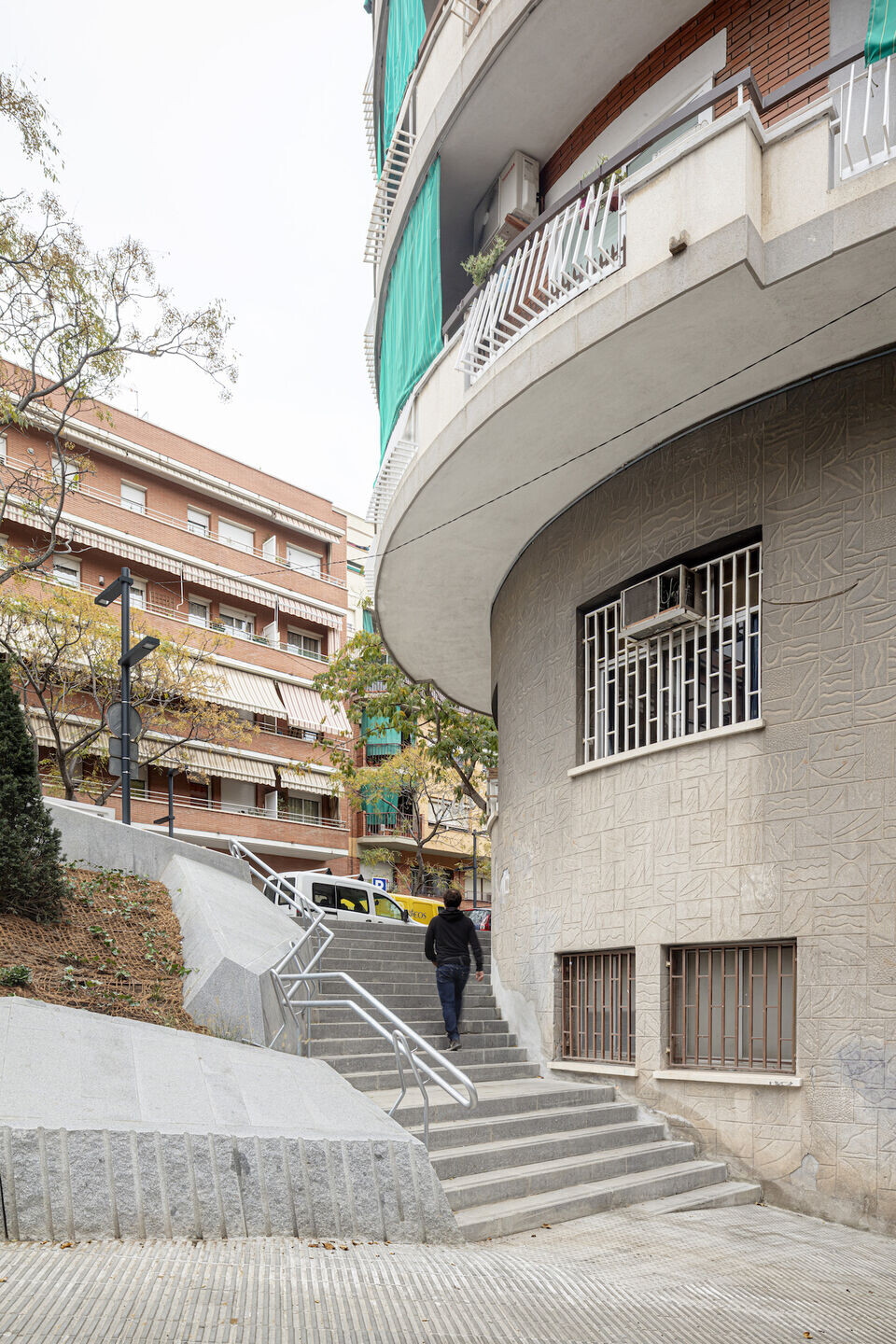
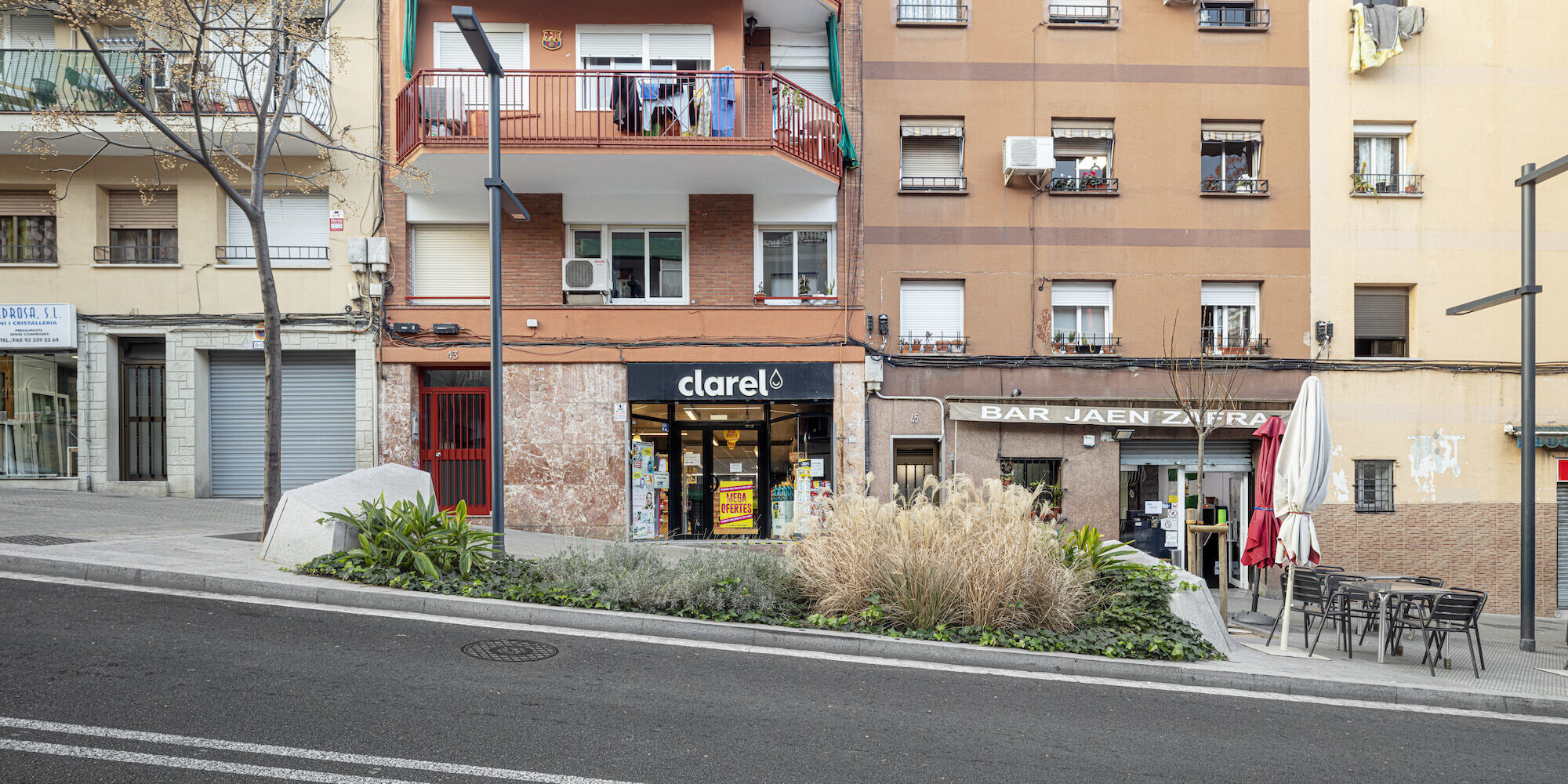
These structures cut in granite lengthen routes, smooth slopes and improve the accessibility of these impossible streets, which would require climbers and not retirees. The redevelopment of the four hundred meters of Mina de la Ciutat street turns around those half dozen corners, and the dissemination of its solution in other points to enclose landscaped areas that soften the stone and sift it with green.
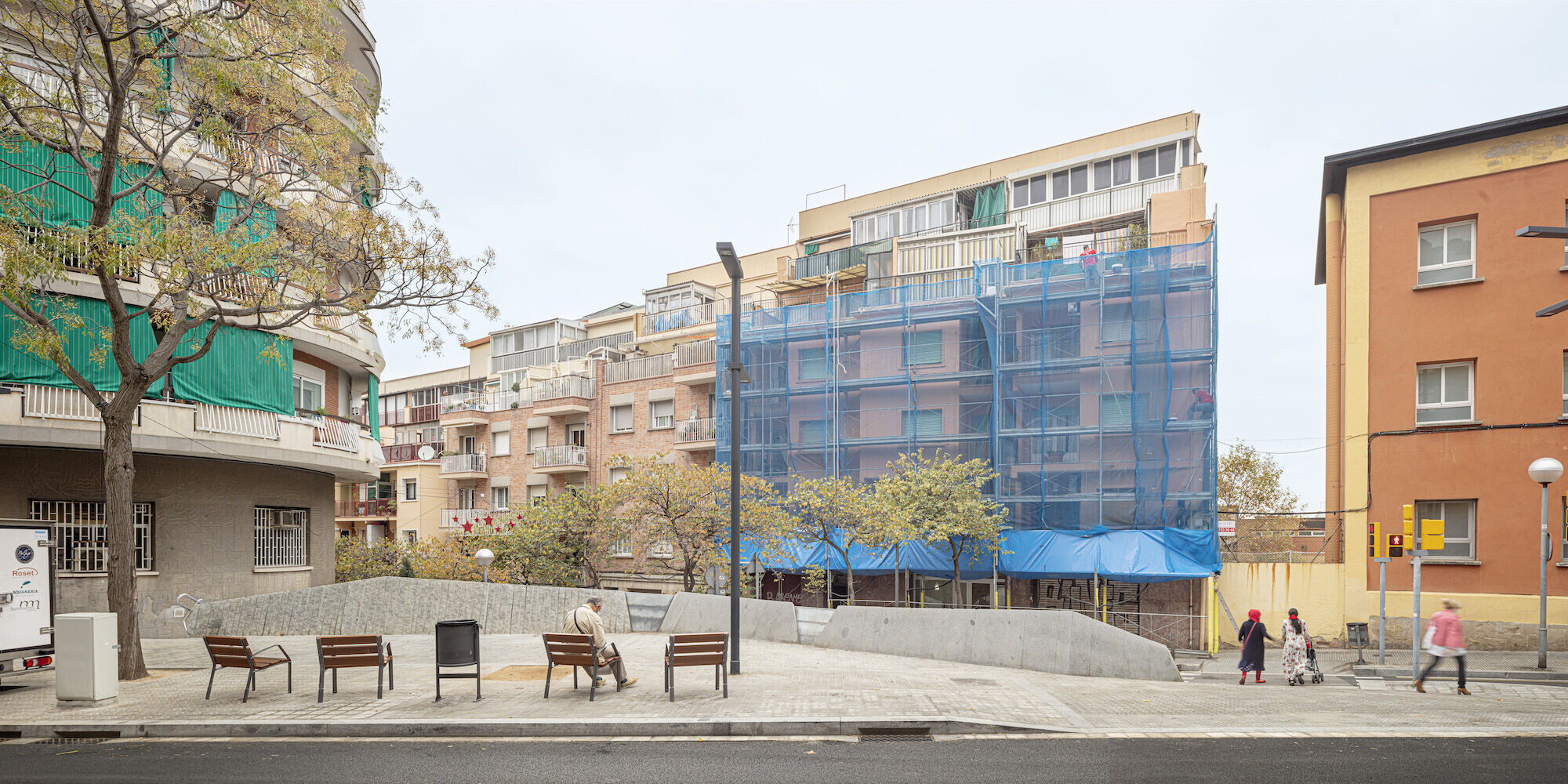
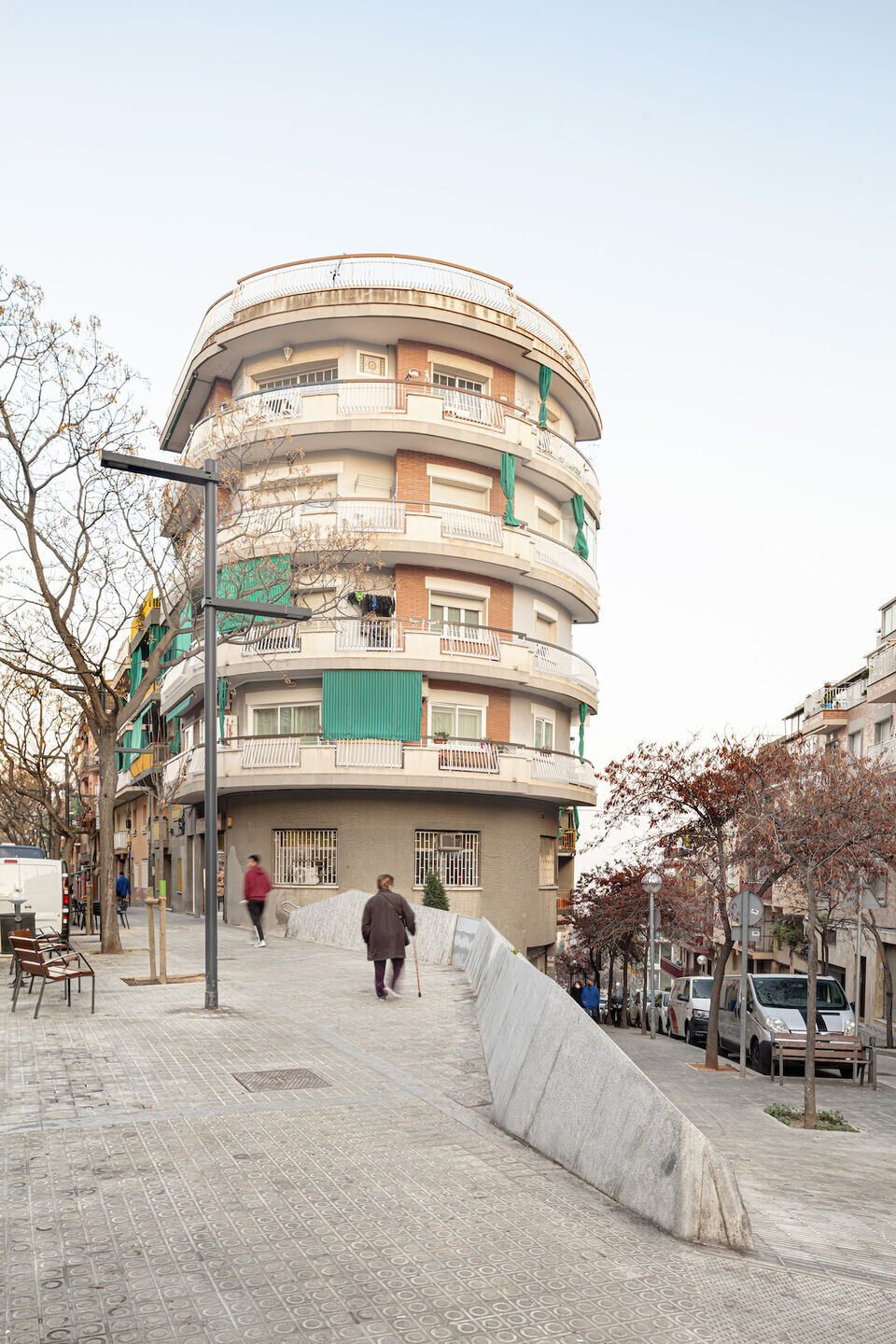
At many points, these figures become stony singularities that characterize the orderly and precise urbanization required by the municipal authority. The street becomes functionality, and Barcelona has been leading that field for decades: granite curbs drawn with chalk lines, standardization of construction details and elements for street furniture, and a specific but wide range of 20x20cm paving pieces, the Barcelona panot par excellence.
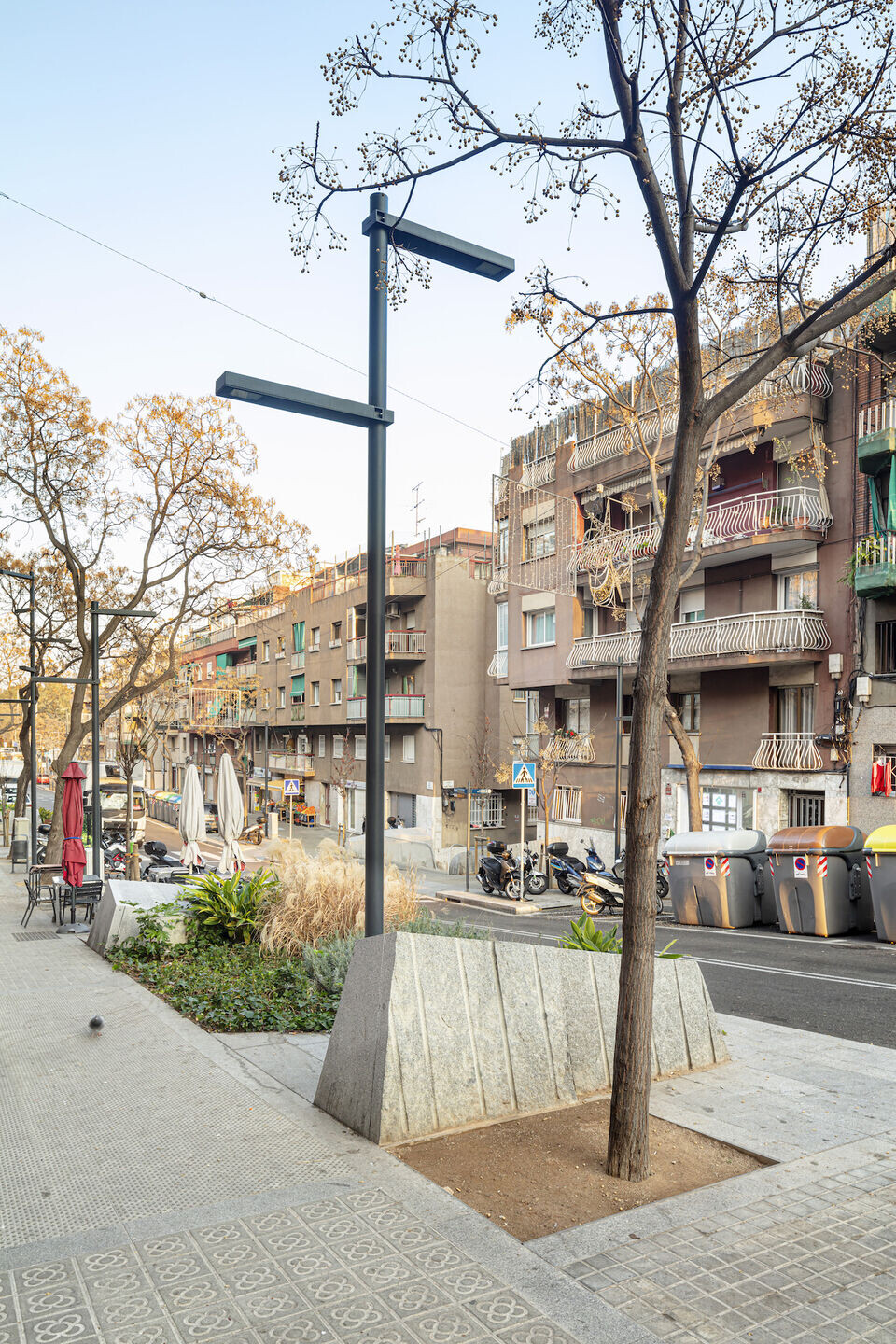
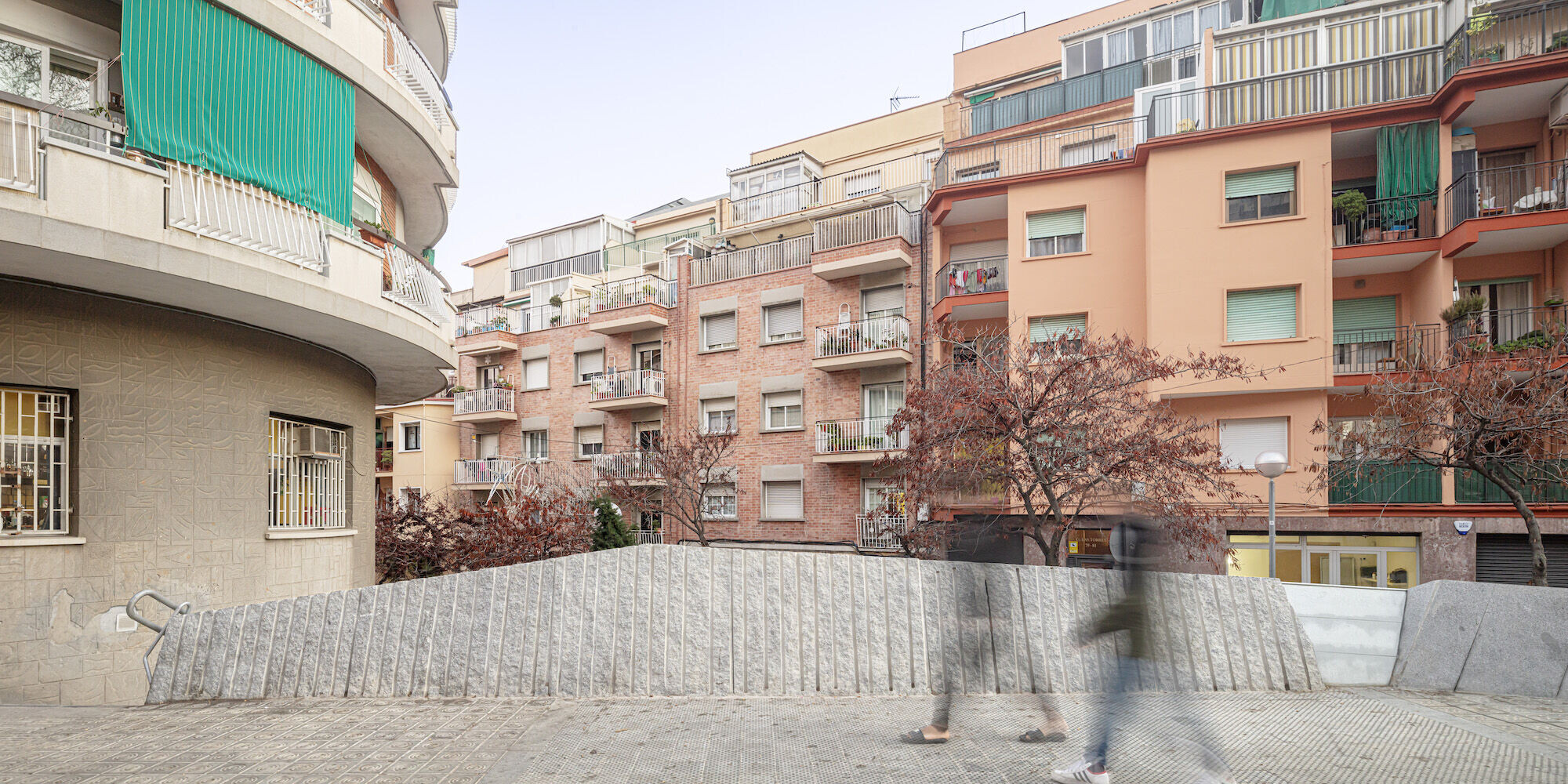
This conglomerate of panots, all the same in dimensions but different in their surface drawings, to drain the rain and avoid skidding, represents the last nod from the architects to the neighbours who have participated so intensely in the six years of project and work: 'We will use all the panot models that are placed in Barcelona. All? Yes, all'. The neighbourhood diversity that exists today, with immigrants from different times and origins, plural in their languages and beliefs, but all residents in Roquetes, is represented in the amalgam of flowers, circles or square cement tablets. They are assorted drawings, framed in granite tiles that pave the street, represent the conglomerated condition of the neighbourhood and, inevitably, generate some ironic response: 'Are you sure this isn't the remains of the works of the entire city?'.
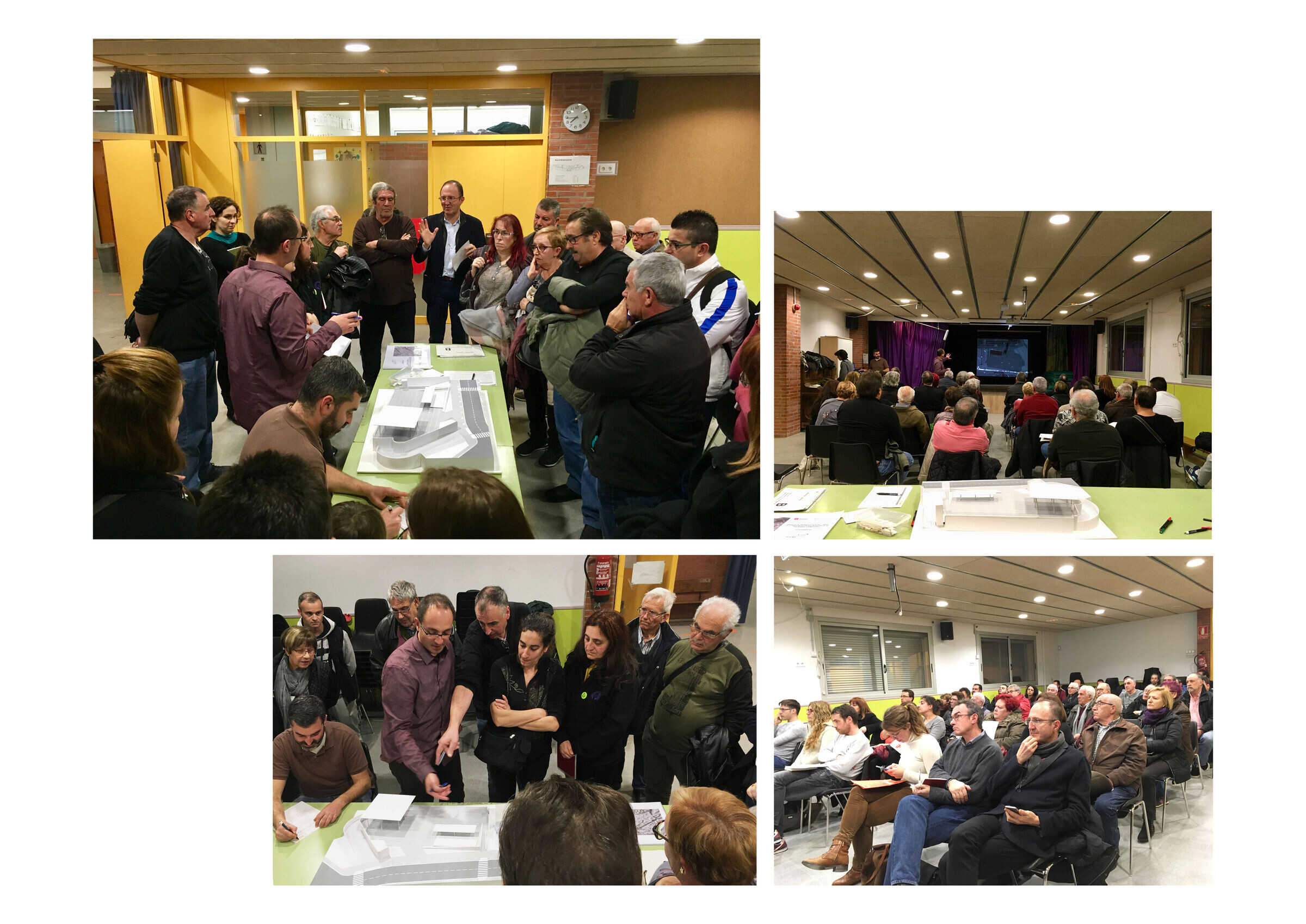
Team:
Architects: Lagula Arquitectes (Antonio Alonso Ortega, Martín Ezquerro Fernández,
Ignacio López Alonso, Manel Morante Mediavilla, Marc Zaballa Camprubí)
Other Participants: Mària Canel, Gemma Arco, Isa Lozano, Rosa Herrero, Antonio
García, Inés Alomar, Patrizia Etxebarria, Nando Cabanillas, Toni Cladera, Carmen
Barberá, Rafa Berengena, Laura Obradó, Jongwook Park, Xavier Font, Aleix Ranera,
Jan Carol, BIMSA, AMSA, TDI Enginyers / M7 Enginyers, BAC / Tresat, Serveis
Tècnics de Districte
Photographer: Adrià Goula
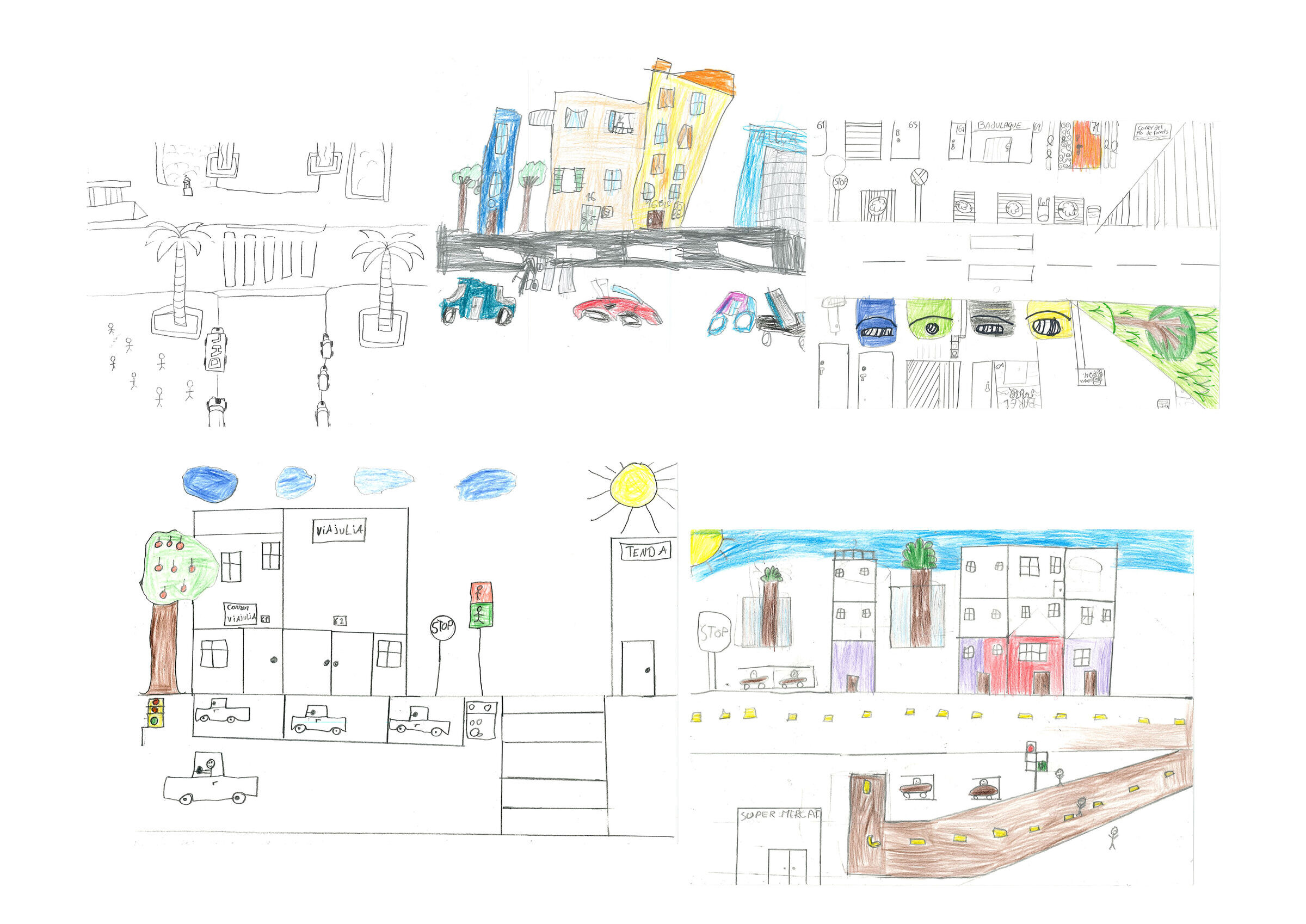
Materials Used:
Rocks cladding: Marbres Lliçà
Flooring: Marbres Lliçà
Urban furniture: Santa & Cole
Urban lighting: Santa & Cole
